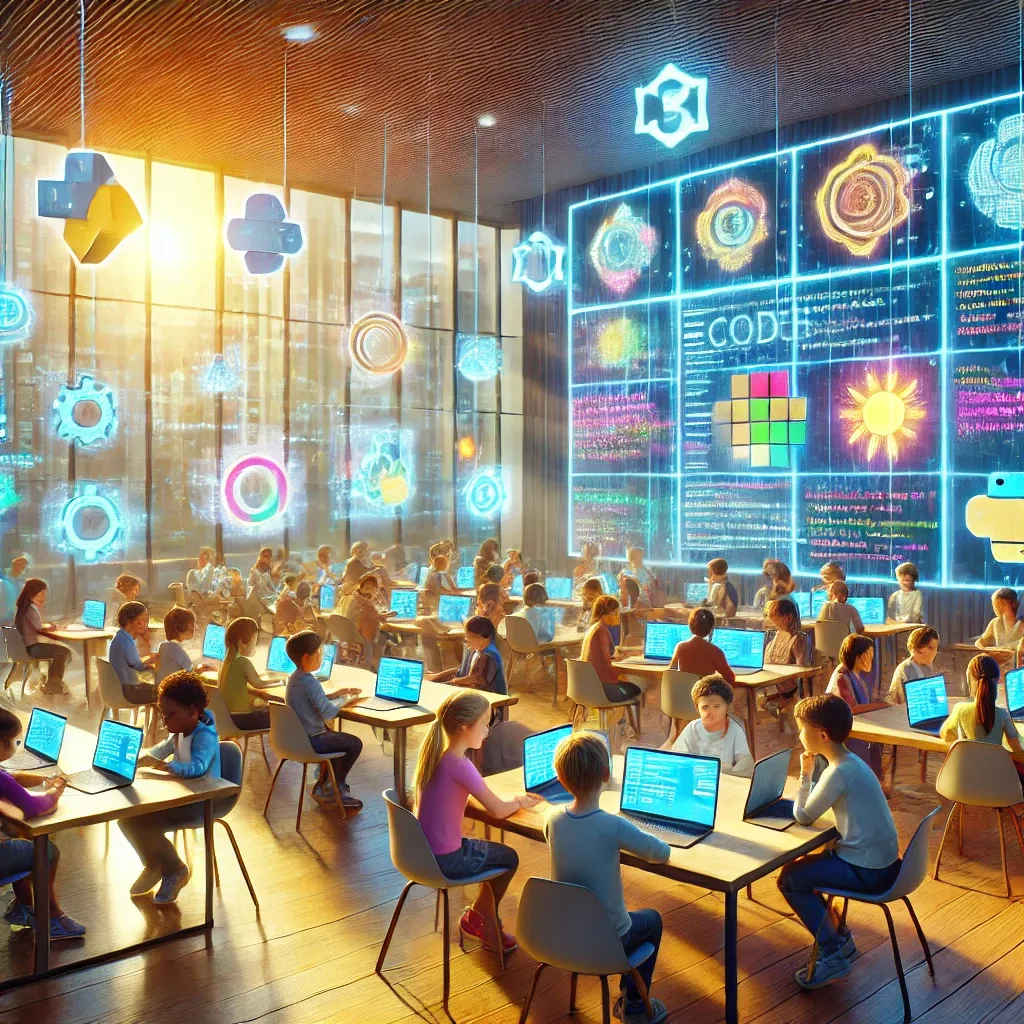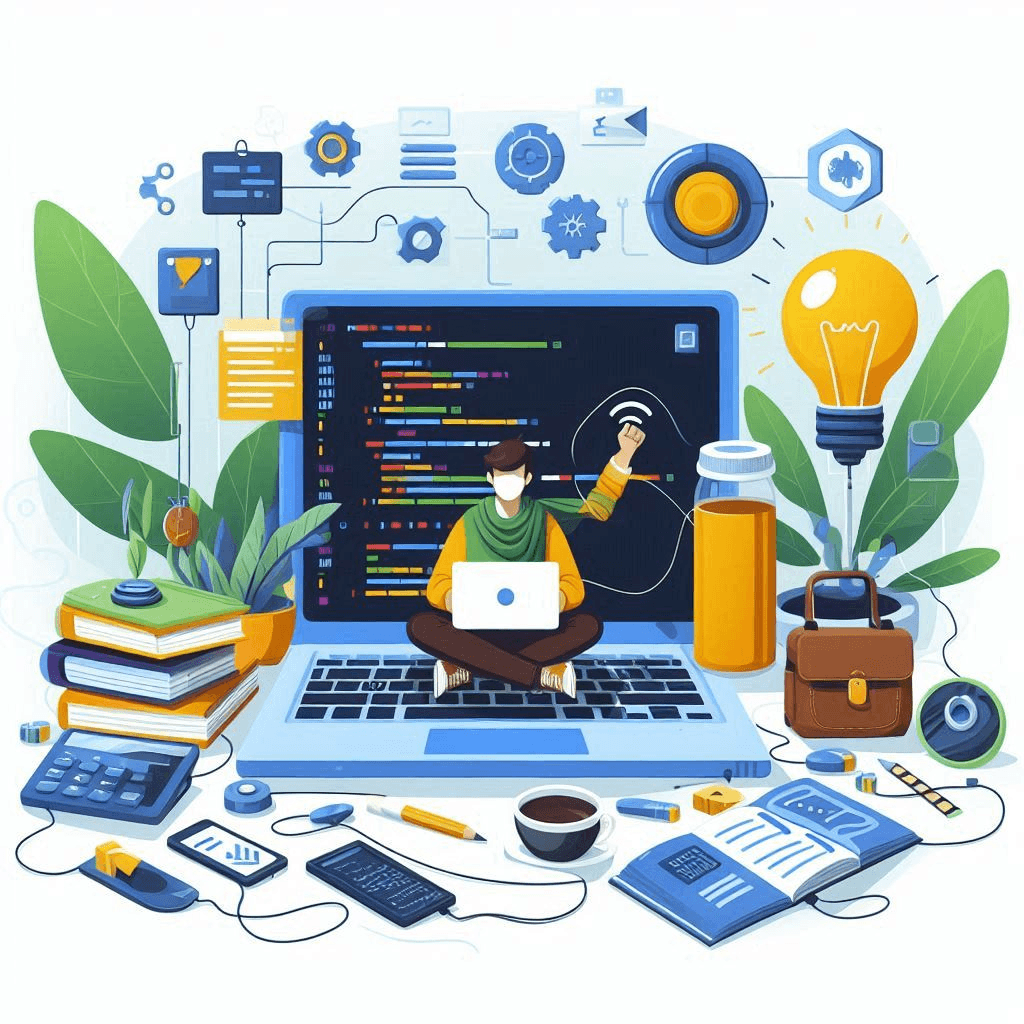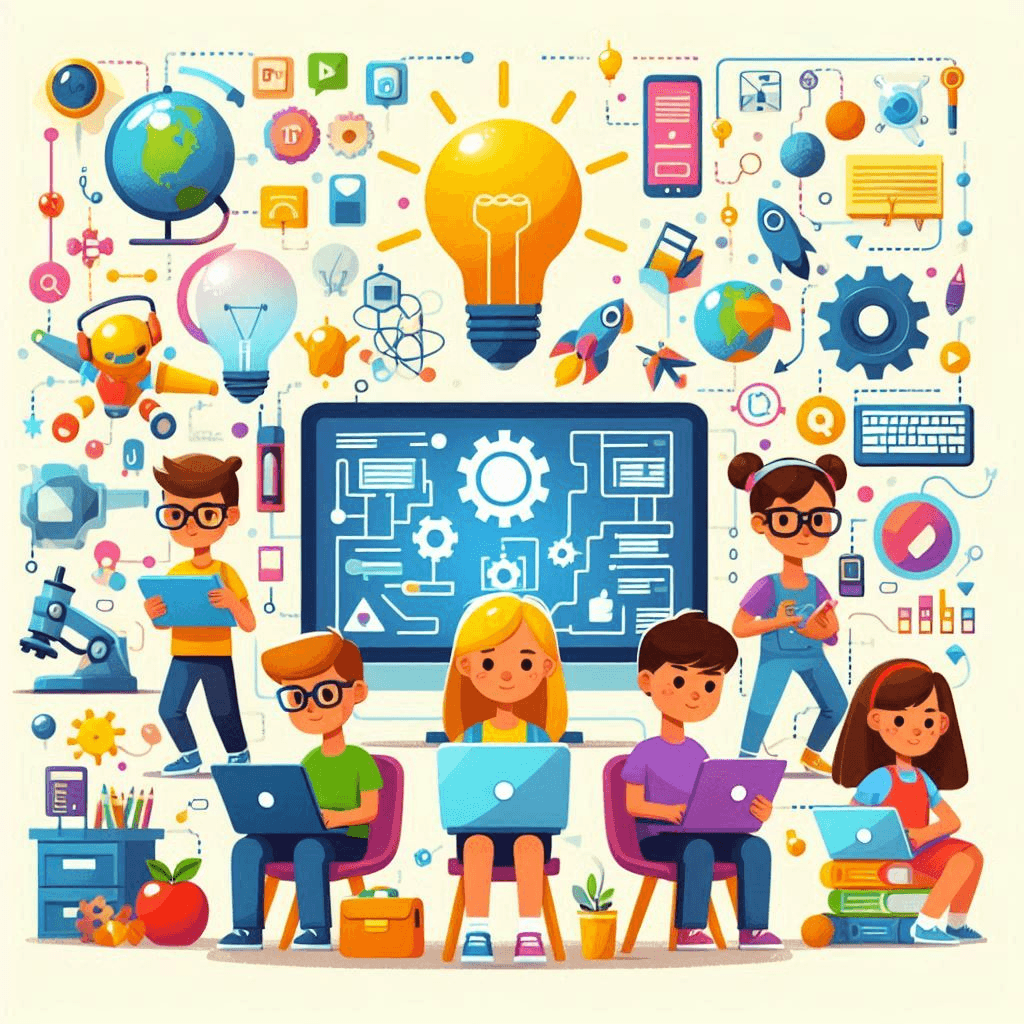Coding Myths Busted: Why Every Child Can Learn to Code
Coding Myths Busted: Why Every Child Can Learn to Code
Many parents believe that coding is too difficult or only children with strong math skills can master it. However, these are just coding myths that discourage kids from exploring the world of computer programming. In reality, there is no way to say that learning coding is either accessible or fun or useful for every kid.
This blog post aims to clarify common myths about programming. These codingmyths can stop kids from learning, regardless of their coding experience. This blog will show why every child should learn to code. The benefits of coding extend beyond just learning this particular skill to developing other valuable skill sets around it. Thus, parents and educators can see why coding is an important skill for today's generation.

Busting the Most Common Myths About Coding
Many common coding myths about coding stop children from starting their coding journey.These misconceptions create unnecessary fear, making parents believe that their child might struggle with computer and data science concepts. Let’s debunk some of these many myths about programming itself. However, coding is accessible to all, and children do not need advanced math to code effectively.

Myth 1: My Child Needs to Be a Math Pro to Code
Kids need to be good at difficult and complex mathematical calculations, to become successful in various programming languages. This is one of the biggest coding myths surrounding most popular programming languages. Although there are some similarities between coding and mathematics, little kids can start coding without being geniuses in the subject.
In practice, it is more of logical thinking and problem solving than more advanced concepts of math to code, data structures and mathematics involved in coding. Many programmers build their skills without needing advanced math. Instead, coding boosts critical thinking and logical reasoning. These skills are useful for tackling advanced topics, like data structures, later on.
Kids can also learn programming through fun and interactive platforms like:
Scratch -a visual programming language for beginners
Blockly -a drag-and-drop tool demonstrating programming logics
Python -one of the most widely used programming languages, known for its easy syntax
The platforms train students to write code without having to deal with complex math problems with advanced math formulas.
Myth 2: Coding Is Too Complicated for Kids
Some parents consider programming is difficult for a child to learn. But, many children learn coding from clubs, online communities, tutorials, and free resources. These tools help them understand the basics of software development easily and debunk common coding myths.
Friendly programming languages such as Scratch, Python and JavaScript let children create simple projects like animations, games or interactive websites. Kids can try game development and design. They can create their own video game or learn web design, even if they have no prior experience.
Coding from a young age gives children a strong foundation in computer science. They can explore Data science, Artificial Intelligence and Software Engineering as they improve their skills.

Myth 3: There Are Only a Few Types of Coding Languages
Most people only mention a few programming languages. In reality, many languages exist for nearly every field in the industry.
Best of these languages for kids and beginners:
Scratch is for visual learners who prefer drag-and-drop programming.
Python is user-friendly for beginners in data science and software development.
JavaScript is critical for web development and making interactive websites.
Swift is perfect for building apps for the iOS platform.
Now, kids can play with language constructs to find innovative solutions, new solutions or even new career paths in the tech industry. Whether the interests stem from software engineering, gaming development, or artificial intelligence, knowing multiple languages would be an added advantage in this diversifying job market.
Why Every Child Can Learn to Code
Skills and coding aren't just for geeky kids. All children can benefit from learning computer programming. Coding myths is not about memorising the syntax; it is more about solving problems, developing logical reasoning and expressing creativity.
This is why coding is meant for every kid:
Coding enhances creativity – Kids can create their own video games, animations or websites.
Strengthens logical thinking – Students see how to break down complex problems into smaller steps.
No formal training was ever offered – Many self-taught programmers got together and met in online communities like Stack Overflow and open-source software projects.
Makes children confident – Children feel achievement in completing a project, no matter how small it is.
With proper support and resources, any child can learn at their own pace.
Benefits of Coding Beyond Computers
Learning to code doesn't end with app and website creation, it prepares children for the real world by teaching them vital soft skills in preparation for their future in tech industry and formal education. Debunking common coding myths can help parents see the broader advantages of coding beyond just computers.
1. Problem Solving and Critical Thinking
Coding involves systematic analysis of situations and innovative solutions, which kids will use to solve problems in their daily lives. Both in fixing bugs in a program and solving a jigsaw puzzle, they use the same techniques they are learning to code to build into better decision-making skills. Understanding math to code helps them develop logical reasoning, which strengthens their ability to tackle challenges. changes made to text
2. Creativity and Innovation
Coding is also a form of art, it teaches children to turn their fantastic concepts, great ideas into reality through interactive stories, mobile apps, web development, or even video game development. Different types of coding allow kids to explore various creative outlets while developing technical skills.
3. Enterprise Collaboration and Teamwork
People often picture a coder working alone in the dark. But coding is actually very collaborative. Coding communities welcome kids to join clubs, write code, and engage in online forums. They can team up with others who share their interests. Together, they can work on exciting coding projects.
4. Career Opportunities in Varied Industries
A lot of programming skills come from coding. This opens doors in data analysis, web development, artificial intelligence, and software development. The tech industry is growing and needs more talented programmers with experience in different types of coding.
Conclusion
Coding myths is for everybody, not just the ones who have math skills or other technical skills and abilities. Kids can learn coding from a very young age to explore an endless number of programming languages through fun and interactive means.
Learning to code helps kids think logically, solve problems, and work in teams. These skills are useful in many jobs and life situations. Parents and teachers should encourage children to learn programming languages, explore online tutorials, and join coding clubs. If you're wondering, "How can my child learn to code?", the best approach is through structured lessons, hands-on projects, and engaging coding communities.
With technology advancing, many successful programmers started with curiosity and practice. Right now is an excellent time for kids to dive into coding with free resources and communities backing them, building a solid foundation of knowledge in this digital world.
Coding Myths Busted - FAQs
What are the biggest myths about coding for kids?
Many coding myths make people believe that programming is only for math geniuses. They think you need to do complex math to code and learn programming. Some students assume that they learn only advanced things and that such learning is too hard for juniors. Others believe that there are only a few well-known programming languages that are worth trying.
The truth is that learning to code is fun: easy to learn and it teaches skills like problem solving, logical thinking and creativity beyond software development itself.

Does my child need to be good at math to code?
No, coding does not require advanced math skills.Logical reasoning and problem-solving are useful, but kids don’t need to be math geniuses to start coding. In fact, computer science builds strong critical thinking and reasoning skills. On the contrary, computer science creates strong critical thinking and reasoning in students, aiding them in later understanding data structures and even more complex ideas. Many successful programmers weren’t math geniuses, they used their coding skills to come up with creative and innovative solutions.
What types of coding languages are suitable for children?
In fact, many types of coding languages have been developed for children. Scratch and Blockly are simple drag-and-drop blocks of visual programming languages and they are best meant for children.
Pythonand JavaScript are text-based computer programming languages among the most popularly used in introducing programming in a simple, laid-back and yet informal manner. Swift and Java are good for introductory study of software development and for developing games at this stage and help to inform young learners well with the foundations of popular programming languages.
Is coding too difficult for young children?
No, coding is not too hard for kids. Coding platforms like Scratch, Blockly andCode.org teach programming through interactive games and storytelling, making it fun and easy.
Even preschoolers can learn basic programming concepts like sequences and loops with simple drag-and-drop activities. Many coding clubs and online tutorials offer structured learning paths, ensuring that kids can progress at their own pace while building confidence in their technical skills.
What are the benefits of coding for kids?
Learning to code helps kids build critical thinking, problem-solving skills, and creativity. It boosts logical thinking and enhances their ability to solve everyday problems. Coding also teaches kids to collaborate effectively.
They can tackle simple projects in coding clubs. They can also connect with others in online communities like Stack Overflow. Coding also builds soft skills that are useful in many fields. This prepares kids for future chances in tech and other industries. Overcoming coding myths ensures that more kids feel confident in learning programming.
